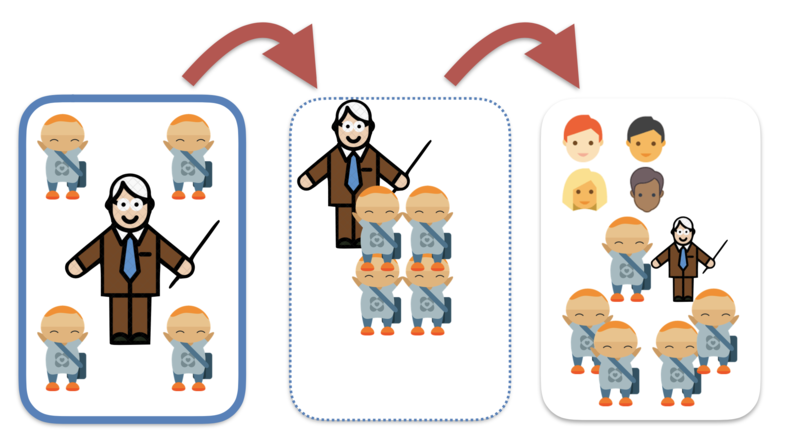e-Learning Ecologies MOOC’s Updates
Update #2 - Inquiry-based Learning
Inquiry-based learning sits well within the theory of experiential learning, which at its most basic definintion is the process by which students learn through student-centred-activities rather than via simply consuming information, or as Cope called it 'didactic pedagogy' (Kalantzis and Cope, 2015)
Inquiry-based or sometimes also called Problem-based Learning (PBL) is a learning activitiy where students are given a specific problem, issue or theme to investigate, research, discuss and create their own affordances, solutions and suggestions. The below short video illustrates the main elements of this type of learning (Spencer, 2017).
Technology has enabled inquiry-based learning to be far more easily put into practice than previously where students woudl be limited by resources available to them physically and locally. Students are now able not only to access a far wider range of information sources but through social media are able to connect to a diverse range of voices and expertise. The below image (my own) illustrates how this can drastically change the concept of a classroom and the role of the teacher within that process.
However, this image is not meant to indicate in anyway the limitation of the role of the teacher, only their relationship with the students (as co-creators of their learning), but more the change from the 'font of all knowledge' to a facilitator and guide. Indeed in inquiry-based learning this is an essential role if the inquiry model is to be successful and students are to achieve their final goal. It is only through rigourous guideance and scaffolding (which may include some elements of socratic teaching), especially through the guided questioning process, that such models can be successful (Kirschner, Sweller, Clark, 2006).
My own experiences in inquiry-based learning indicates the importance of planning and embedding the model into a whole course or at least for a substantial part of it. Where I have seen teachers trying to implement it as 'something to do for a week or so' it has tended to fail as neither the students or the teachers have not been completely commited to the model and need time to develop at all levels and stages of the process. Authenticity is also very important in the levels of successful implementation and application for students.
References
Kalantzis, M., & Cope, B. (2015) Learning and new media, in D. Scott and E. Hargreaves (Eds.), The Sage handbook of learning (pp. 373-387), Thousand Oaks, Sage.
Kirschner, P.A., Sweller, J, and Clark, R.E.. (2006) Why minimal guidance during instruction does not work: An analysis of the failure of constructivist, discovery, problem-based, experiential, and Inquiry-based teaching." Educational Psychologist 41:75-86
Spencer, J. (2017) What is Inquiry-Based Learning? Available at : https://www.youtube.com/watch?v=QlwkerwaV2E



Very interesting read. Agree with the importance of planning and also the need for teacher training.